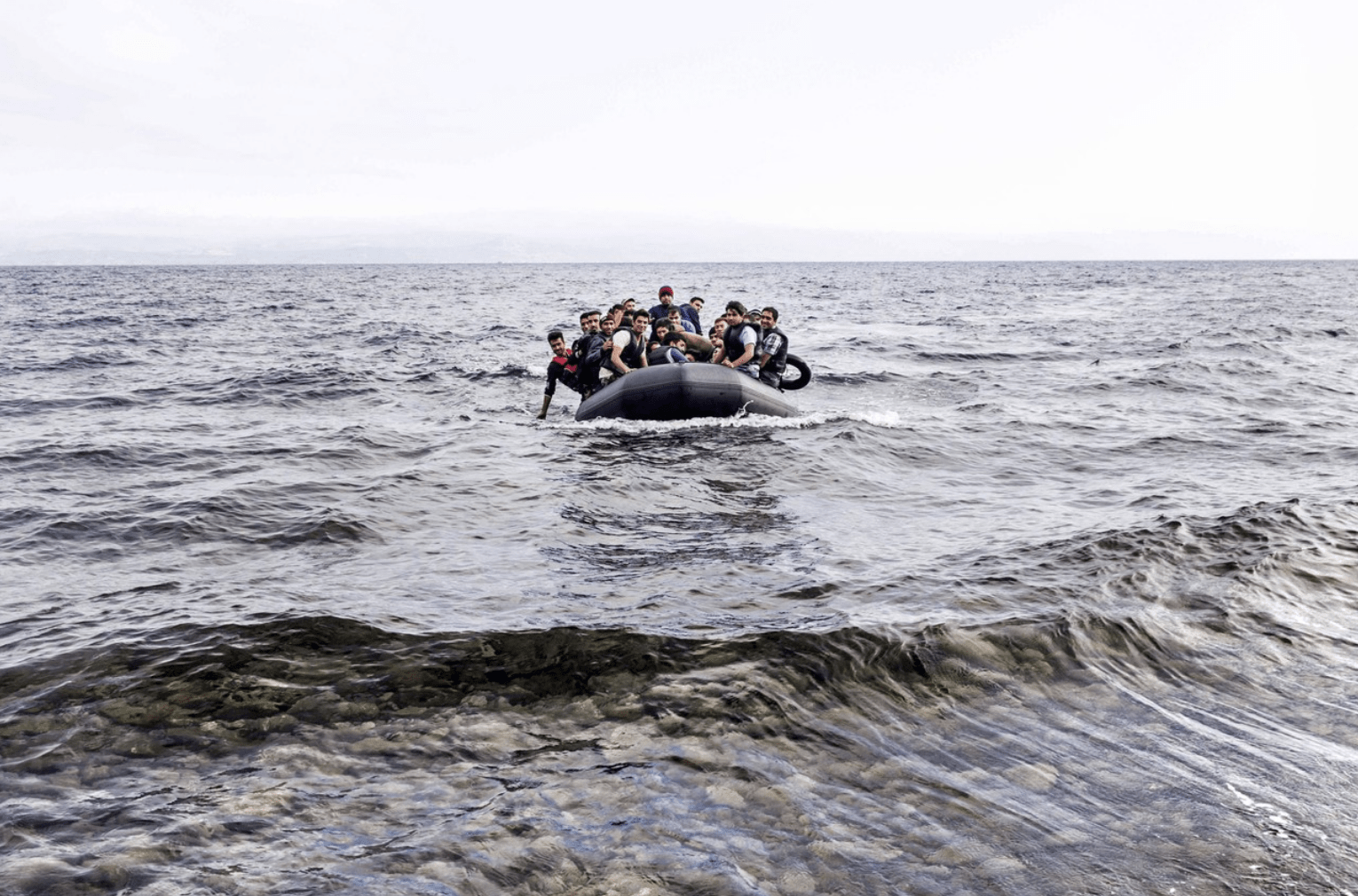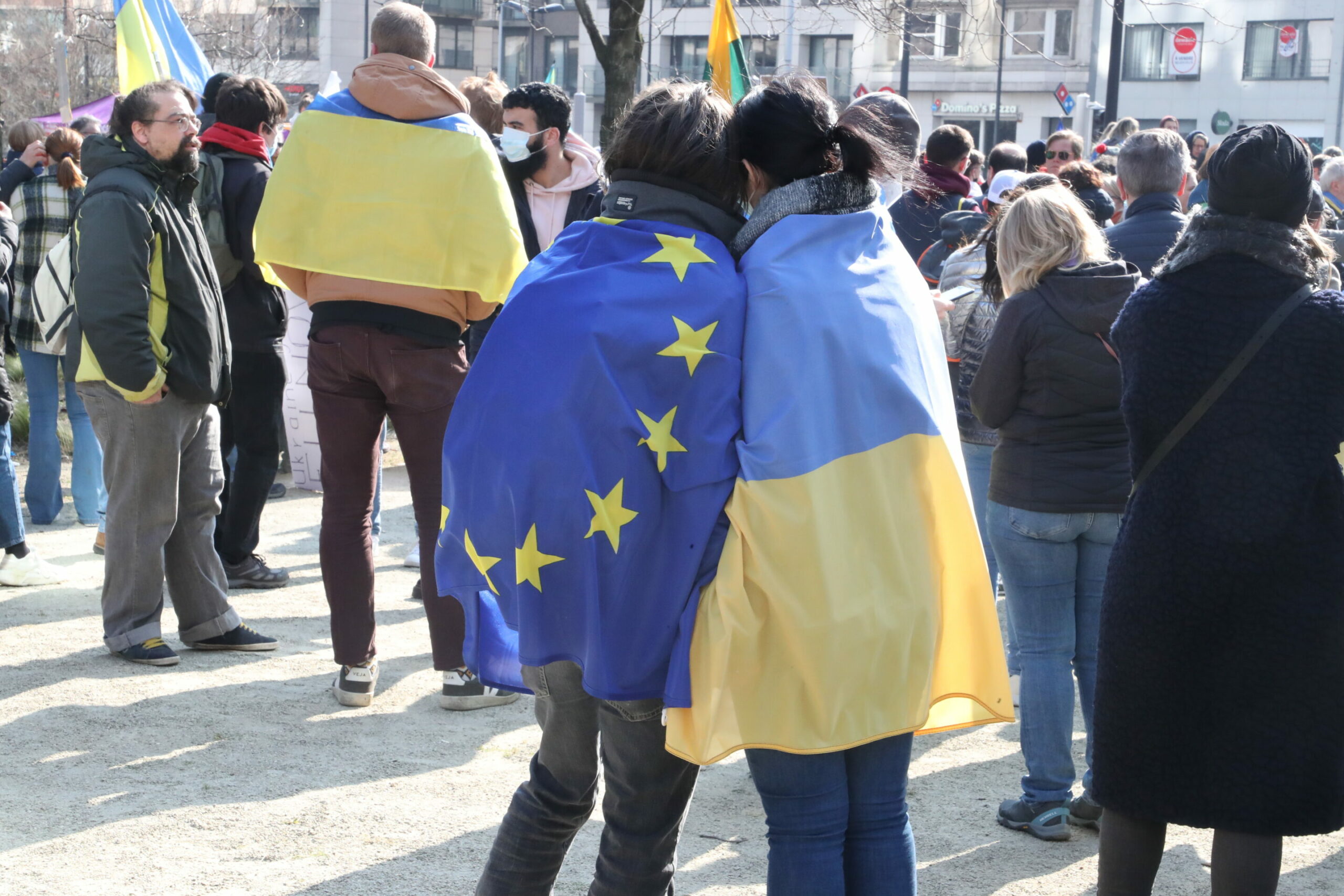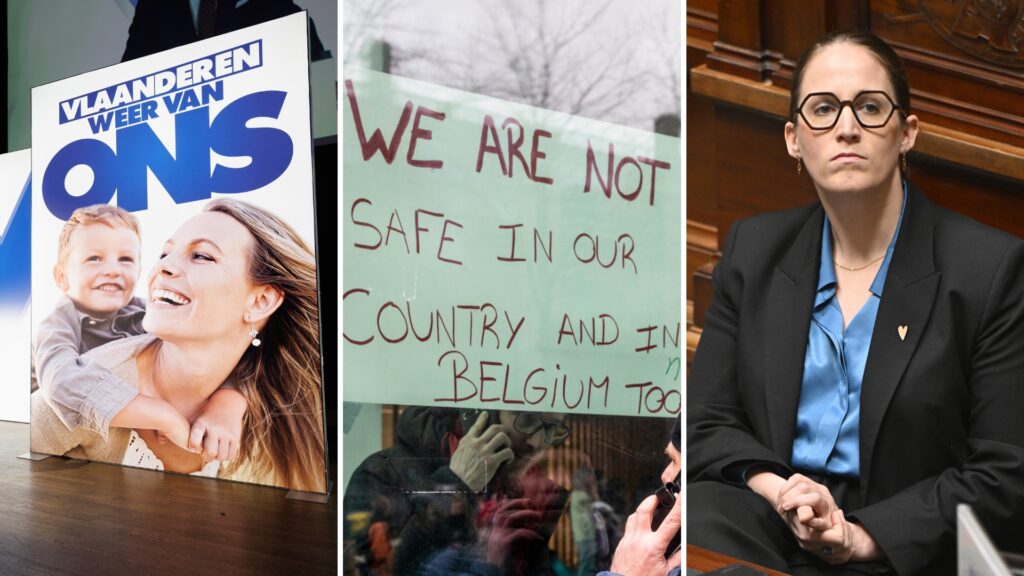For decades now, politicians used migration as a pawn in political games, scaring voters with deceiving figures about "unprecedented influxes", and vowing to keep them out to win over votes. Still, governments stumble from asylum crisis to asylum crisis, while human rights are eroded.
From the United Kingdom's anti-migration campaign for Brexit in 2016 to Italy electing populist Prime Minister Giorgia Meloni to crack down on irregular immigration, many voters have been drawn in recent years by the simple notion: newcomers pose a risk to your everyday lives, and ascending party promises to curtail it. Since Brexit and Meloni's election, migration has increased in both countries.
In Belgium, the far-right Vlaams Belang party with its anti-immigration stance is dominating the polls in Flanders ahead of the upcoming elections in June.
Vlaams Belang politicians often argue for a migration freeze, even if rules on asylum and migration are largely laid down at the European level. Politicians often mislead voters with incorrect information about curbing migration while misrepresenting reality, according to Thomas Willekens of Refugee Work Flanders (Vluchtelingenwerk Vlaanderen).
"When policymakers talk about migration, they are always fixated on asylum seekers, while in reality, the vast majority of migrants worldwide are economic migrants, or people who migrate for family reunification or to study and doing so via safe, regular routes," he told The Brussels Times. Only about 10% of all migrants coming to Europe are refugees.
'Feigning control'
Policymakers convince voters that this form of migration is "out of control" and that their policy can regain that control by building walls or by "stopping the boats".
"And time and time again, they make voters believe that that works, that curbing migration is possible, but it is not," Willekens said. When looking at the requests for international protection, the figure fluctuates from around 45,000 during the 2015 migration crisis to 18,340 in 2017 as an example of an off-peak year. This is also noticeable in the number of "irregular entries" at the external borders, recorded by Frontex.

Credit: Belga
"These highs and lows are always linked to clear external shocks or conflicts, or even weather conditions, regardless of policy choices."
Dutch sociologist Hein De Haas in his book 'How Migration Really Works' stressed that it is an illusion to think people can be stopped if war breaks out in or outside Europe. "That has never succeeded. If you start patrolling Lampedusa more strongly now, fewer people will cross the Mediterranean there, but the route will shift. And it is impossible to build a wall around the whole of Europe."
Instead of recognising this reality of peaks and troughs, politicians have proposed the same "solutions" to migration for the past 30 years, without results. "This shows that politicians are misleading people, that they are contributing to a feeling of loss of control."
Self-fulfilling prophecy
Ahead of elections, this feeling is fed on by parties that again promise to regain that control if people vote for their party, driving a self-fulfilling prophecy. "After a few years, voters see that there is no control, they believe there are too many asylum seekers, and they vote for parties with even tougher policies."
This vicious cycle goes hand in hand with dire human consequences, opening doors to deals with third-party countries, providing EU funding to states that openly abuse, torture and detain migrants. In Belgium too, such policies resulted in thousands of people, including children, sleeping rough rather than receiving the shelter they are legally entitled to.
"Images of people on the street also contribute to the way Belgians view them, further fuelling the vicious cycle." On the other side of the spectrum was the EU's response to Ukrainian refugees in 2022. "We saw that if the government welcomes them with open arms from the beginning and asks citizens to show solidarity, this affects public opinion.'

Credit: Belga / Nicolas Maeterlinck
The role of policymakers cannot be underestimated, but "unfortunately, they continue to bet on that very critical and negative view, perpetuating the problem they helped create around migration. That delivers votes in the short term but the hidden cost of this approach in the long term is huge".
Willekens noted that many people who vote to curb migration are unaware that tougher policies are also costly. "Heightened control at external borders requires customs officers, detention centres and monitoring, while forced returns mean additional police forces and the cost of return flights, which also weighs heavily on tax-payer money. And then there is the cost of the reception crisis: hundreds of thousands of euros in court settlements."
Breaking the cycle
For Willekens, the real question is: how can politicians continue to sell those migration-critical views – and what would happen if that money and political power were used to view migration positively?
Ahead of the upcoming European and Belgian elections, he is calling on Belgian residents to cast an informed vote.
"This policy is not working. We continue to vote for those same policymakers with policies that don't work. And at the end of the day, voters want their vote to pay off and for their tax money to be spent wisely," Willekens said.
He also urged left-leaning parties to take a more positive stance. Recent public opinion data from the European Council on Foreign Relations (ECFR) showed that, on the European level, imitating far-right parties on migration policy has the potential to backfire. "But you rarely see a party come out to say that migration shouldn't be seen as a problem but as a reality that has to be dealt with."
Meanwhile, in Wallonia, where the political balance tips more to the left, the topic of migration barely comes up as a priority in any of the manifestos – either boosting or abetting the fact that the far-right there is non-existent.
In Flanders, the region where voters most often indicate migration as an important topic in polls, the Flemish socialists (Vooruit) in its manifesto do raise concerns about the human toll of the current policy. However, it too adopts phrases such as "regaining control of our migration system" and "being strict for those who are not entitled to asylum."
Flemish green party Groen takes a slightly more positive stance, calling for more legal opportunities to migrate and to stop illegal pushbacks at Europe's external borders. It is the only Flemish party that calls for a national distribution plan for the reception of asylum seekers, which civil society organisations have repeatedly said is the only solution for the reception crisis.

